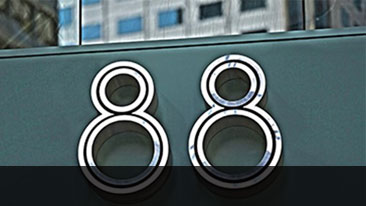Company Voluntary Arrangement (CVA) - reduce your creditor pressure
Create a repayment plan that suits you and your creditors
Lost contracts and bad debts can put even profitable businesses into dire straits. But if your business is still viable, and can prove that it was profitable in the past, a Company Voluntary Agreement (CVA) could be the right solution for you.
A CVA allows you to reduce creditor pressure, cut costs and restructure the business quickly and efficiently – and the experts at Moorfields are here to guide you through the whole process.
In fact, our help with CVAs begins before you even get in touch. Read our guide below for advice on the process, or give us a call today to discuss it with one of our experts.
What is a Company Voluntary Arrangement (CVA)?
A Company Voluntary Arrangement (CVA) is a legally binding agreement that allows a company to freeze all unsecured debts, and draw up a new repayment schedule and new terms.
With an achievable full and final payment, the company can then repay its debts over a period of time, using its future trading profits. The exact terms are all set out in a CVA proposal.
That’s where we come in. If a CVA is the right choice for your business, we’ll help you draft your CVA proposal and get the support of creditors. Provided they still have a customer to trade with moving forwards, and can secure a return on the current debt, creditors are often willing to accept a CVA.
Finally, once your CVA has been approved, we’ll even help you obtain new funding. So your business can once again put its best foot forward on the road to success.
What sort of company can benefit from a CVA?
- Viable businesses that have been profitable in the past
- Directors who wish to stay in control, and just need a bit of help to start trading their way out of difficulties
- All kinds of business sectors – a CVA is a highly flexible arrangement that can be adapted to fit all sorts of needs
Who can make a CVA proposal?
The proposal can be made:
- By the directors, where the company is not in liquidation or subject to administration.
- By the administrator, where an administration is in force.
- By the liquidator, where the company has been wound-up.
The proposal can take any form, subject to the agreement of creditors. Still, it normally involves the delayed or reduced payment of debt, capital restructuring, or the orderly disposal of assets within an agreed timescale.
It’s also worth noting that while the company remains under the control of the directors, the CVA scheme itself will be under the control of a licensed insolvency practitioner, or “supervisor”.
What protection is available from creditors?
If your company is under pressure from HMRC, or other trade creditors are threatening legal action, a CVA will protect you against their legal claims whilst proposals are put into place:
For smaller companies, a moratorium is available. This will allow you some breathing space, so that you can propose and implement a CVA without the threat of proceedings from creditors.
For larger companies, protection from creditors may be obtained through the administration procedure.
What qualifies as a small company?
A small company moratorium may be available if the company meets ‘small company’ criteria, where:
- Turnover is no greater than £6.5m
- Balance sheet assets are no greater than £3.26m
- There are more than 50 employees
- The moratorium lasts for 28 days and prevents all action against the company and its assets.
- No administrator can be appointed
- No petition can be presented
- No administrative receiver can be appointed
- No creditor enforcement of security is permitted
What are the benefits of a CVA?
- A CVA is excellent tool to help you turn around your business when circumstances are against you. It comes with many benefits, including:
- Protects your company from creditor pressure
- Works as a legally binding agreement
- The business continues to trade under the control of its directors
- A significant level of your company’s debts could be written off
- The amount you do pay back is paid in instalments over a period of up to five years
- Can quickly improve cash flow
- Halts pressure from tax, VAT and PAYE while the CVA is being prepared
- Enables you to terminate employment contracts, leases, and onerous supply contracts with no cash cost
- Involves no investigation into the company’s affairs or the conduct of the directors
- Customers will most likely be unaware that a CVA is taking place, so negative PR won’t be an issue
- Tax losses can be used to offset tax on future earnings
What other options are there?
An Individual Voluntary Arrangement, Voluntary Liquidation or Administration.
Our experts can help you review all your options and guide you through the relevant processes.



